Updates from Letty – October 23, 2020
Blog posts are the personal views of Letty Hardi and not official statements or records on behalf of the Falls Church City Council
Dear Friends,
Today is the last day to request a mail-in absentee ballot. (Over half of Falls Church has already voted!) If you plan to vote early before November 3rd, your best bet is to take advantage of the in-person voting option at City Hall, open weekdays and the next two Saturdays. Speaking of weekends – for those asking about Halloween, here are some tips and COVID-safe alternatives, one of which starts this weekend.
A new affordable housing report was the main topic of our super-sized work session this week, held with several boards* that have championed affordable housing in their respective policy areas. For long time readers of my posts, you’ll know this is not a new topic. Rather than re-hash the case for more affordable and more diverse housing stock in the city (I’ll link to old posts for anyone who needs to be convinced) – read on for the newest set of recommendations to address the affordable housing crisis and my thoughts, especially in light of the tough economic climate. Please chime in with your thoughts too.
For those following the money – at next week’s meeting, we’ll have both a budget amendment for various appropriations, including updated 911 technology, and a vote to issue the first bonds for stormwater projects. I support investing in our stormwater infrastructure, but remain concerned about funding a narrow plan that only creates more pipes without a broader, multi-pronged approach. I’d welcome your thoughts or you can also submit public comment.
Best,
Letty
*PS – If you are looking for a low commitment way to get involved in the city, consider applying to fill new vacancies on several boards and commissions.
What Happened This Week:
(1) Affordable Housing
We received 11 recommendations from two non-profit groups working in the area of affordable housing, on preservation of affordable housing and how accessory dwelling units could be a part of the plan. The recommendations centered around several key themes:
Dedicate funding to the Affordable Housing Fund
To be clear, no affordable or workforce housing plan is “free” – they all require resources from the city of some kind, either a land contribution, a loan, or direct financial support. And to date, the Affordable Housing Fund hasn’t received an infusion in years. Options presented: new sources of tax revenues like increasing the meals tax, carving it out of the existing budget, converting developer provided affordable units into a cash-equivalent, and securing grants.
Letty’s thoughts: Ordinarily, I’d support any and all combinations of those levers, but given the current economic environment, I would not support raising taxes while we have so many businesses and residents who are barely hanging on. The consultants concurred. That doesn’t mean we do nothing, especially knowing that those most impacted by the pandemic are also the most housing vulnerable. An immediate step is to identify and quantify our preservation opportunities and apply for Amazon’s affordable housing grants (free money is always good). Amazon has committed to $15M each year for 5 years as part of the HQ2 package for the region. We are eligible for up to $3.7M which can be directed to preservation and new housing efforts. 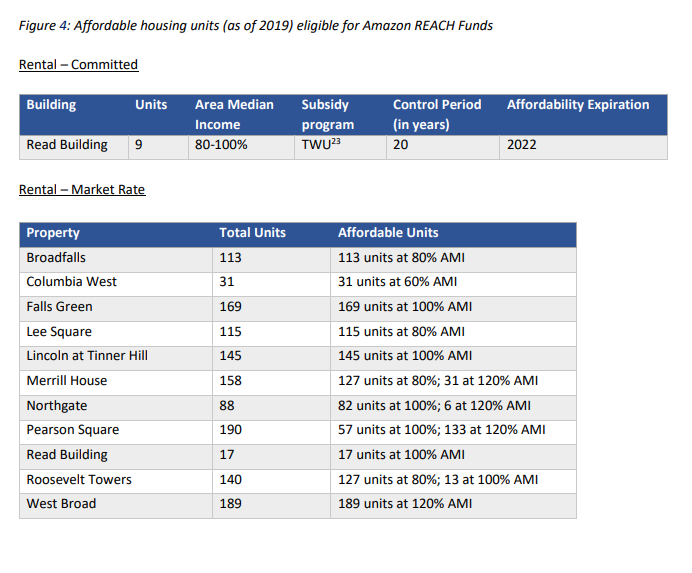
Preserve and extend affordability of existing affordable units
While our new policy requires affordable units to never expire (beginning with Founders Row), that is not the case with older units. Without proactive action from the City, all 54 rental units will be lost by 2035, and more than half of the owned units by 2023 (the ones at the Broadway have already expired).
We have been bringing attention to The Fields, which has 96 units of affordable housing, set to expire in 2026. The consultants recommend developing our strategy for The Fields while we wait to engage the current owners in 2024, due to various complexities in the ownership structure.
Letty’s thoughts: We should offer a financial incentive to current ADU owners in exchange for extending the affordability of these existing affordable dwelling units past their current period. It can be in the form of direct subsidies or programs to provide grants for infrastructure and repairs in exchange for additional years on the affordability covenant. See funding sources above.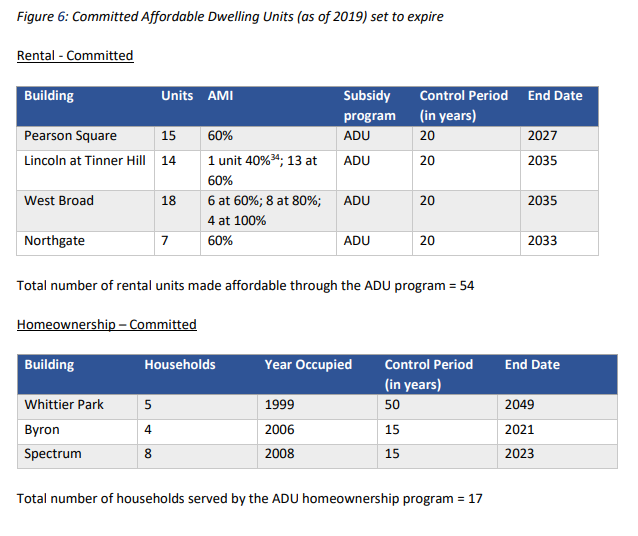
Accessory Dwelling Units
Accessory Dwelling Units, as a new housing type, can help increase the supply of affordable housing by creating smaller, more affordable backyard units (and offering homeowners with extra income to meet rising homeownership costs); encourage better housing maintenance and neighborhood stability; and create more generational diversity by enabling older homeowners to age in place and younger families to invite grandparents to live with the family.
Adopting an ordinance to allow detached accessory dwellings is important, but it won’t mobilize their development nor ensure they will be affordable without incentives to encourage their production and regulations to limit their size. The consultants noted that the cost of such incentives would still be far lower than the cost to create comparable affordable housing.
Letty’s thoughts: Accessory Dwelling Units have a lot of potential and should be further explored. Besides the importance of apartments being affordable, we have a similar opportunity to encourage single family homes to stay affordable, rather than be sold and flipped into a much larger home, which is what the high land costs currently incentivize. Accessory Dwellings could be one part of that solution. I know the concept automatically sends up red flags about “neighborhood character”, parking, and stormwater issues – just to name a few – so we should study other communities that have successfully modernized their code and how they mitigated those concerns.
Build capacity, community support, and partnerships
For this to succeed beyond rhetoric, we need to make affordable housing an explicit priority.
Letty’s thoughts: Enough said. Many of us requested that we take the recommendations and turn them into action plans with commitments and dates. I expect we’ll be discussing again in November, so stay tuned.
Background / Old Posts on Housing:
Why affordable housing matters for everyone
Summer 2020: We are the least racially and socioeconomically diverse; US housing policy has been anchored in racism, but we can do better; and “Racial Equity Starts with Housing” op-ed
September 2019: “Can the Little City Be Yimby?” op-ed
July 2019: Housing Chapter Discussion Post
January 2019: Affordable Living Policy Post
(2) Q1 FY21 Financial Results
With the caveat the one quarter does not make a trend, the Q1 FY21 financial summary showed total revenues slightly ahead of budget by 3%, mainly driven by sales tax growth, which was boosted by grocery and internet sales – similar to what we saw in the second half of FY20. Most other tax categories, like meals tax, is below budget. This is despite the fact that July-September in Q1 are typically the best months for outdoor dining, so it’s important to keep supporting our local restaurants and retailers as the weather turns colder and outdoor dining opportunities wane.
(3) Tax Dollars At Work
Seen around town this week:
Library construction continue to moves along, set to complete May 2021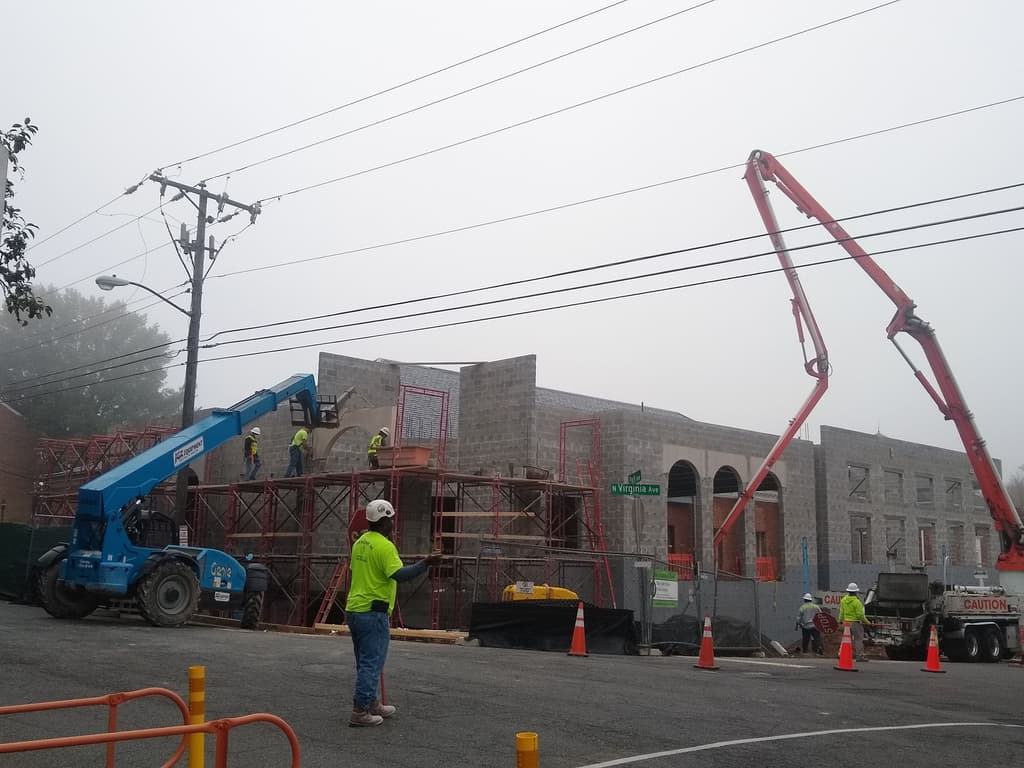
Big Chimneys Park (I spy the new playground equipment!) is scheduled to open this fall/winter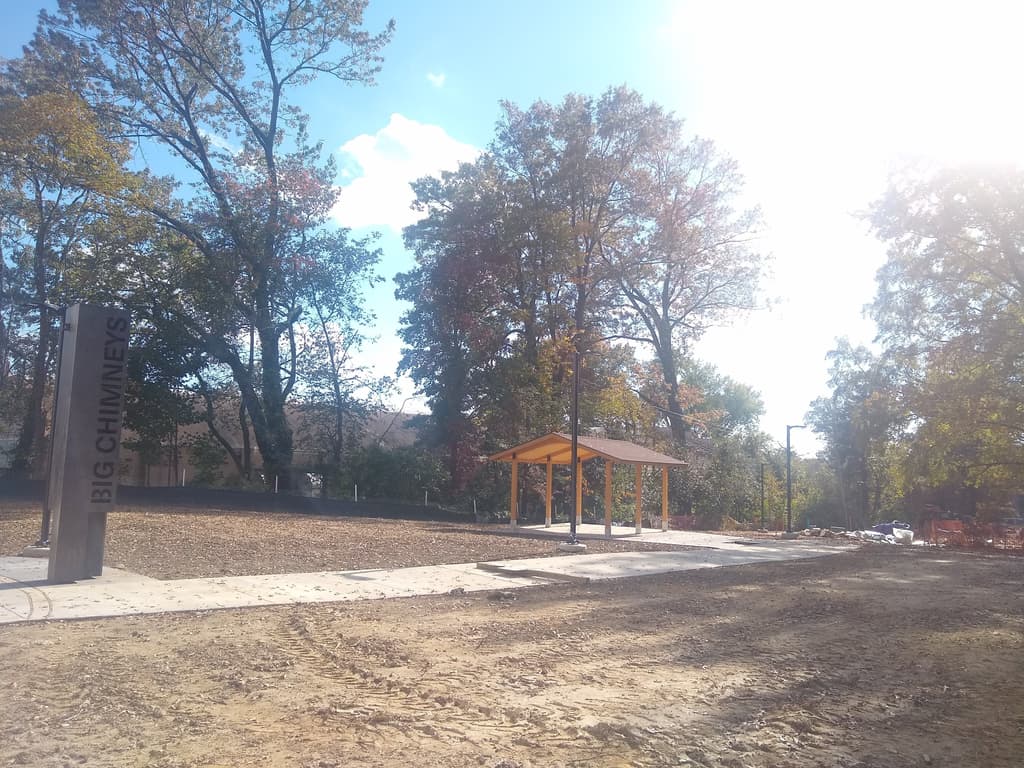
The beginnings of traffic calming/ped safety/sidewalk work – Seaton/N. Oak across from TJ Elementary, in anticipation of more students walking and biking to school in November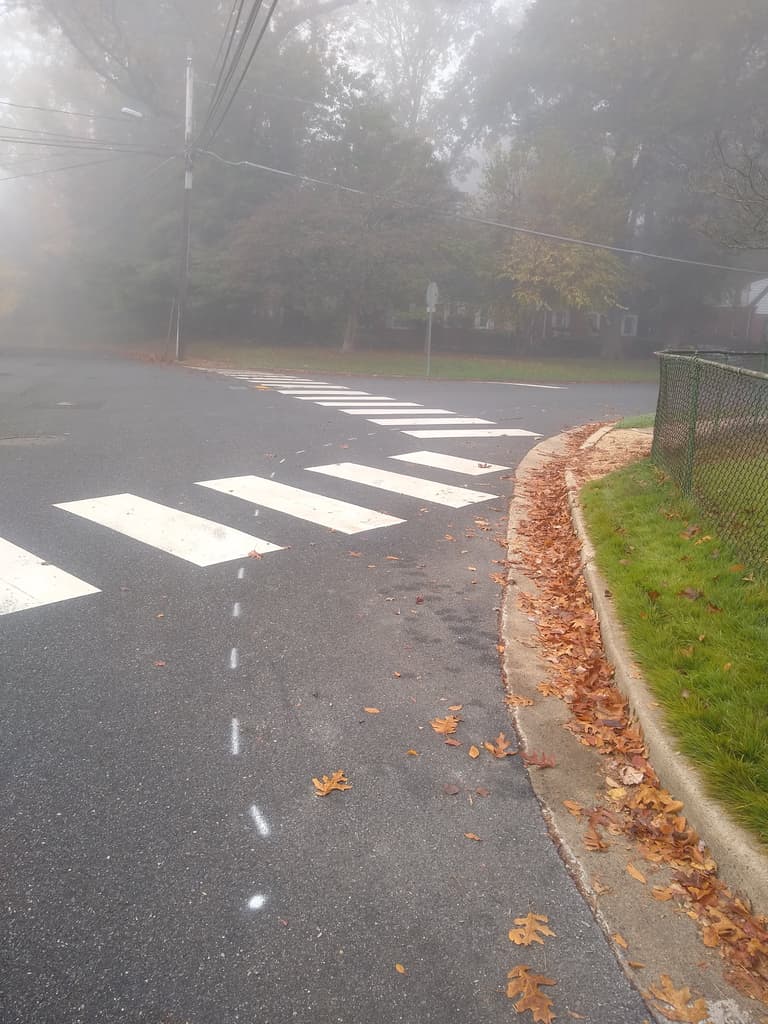
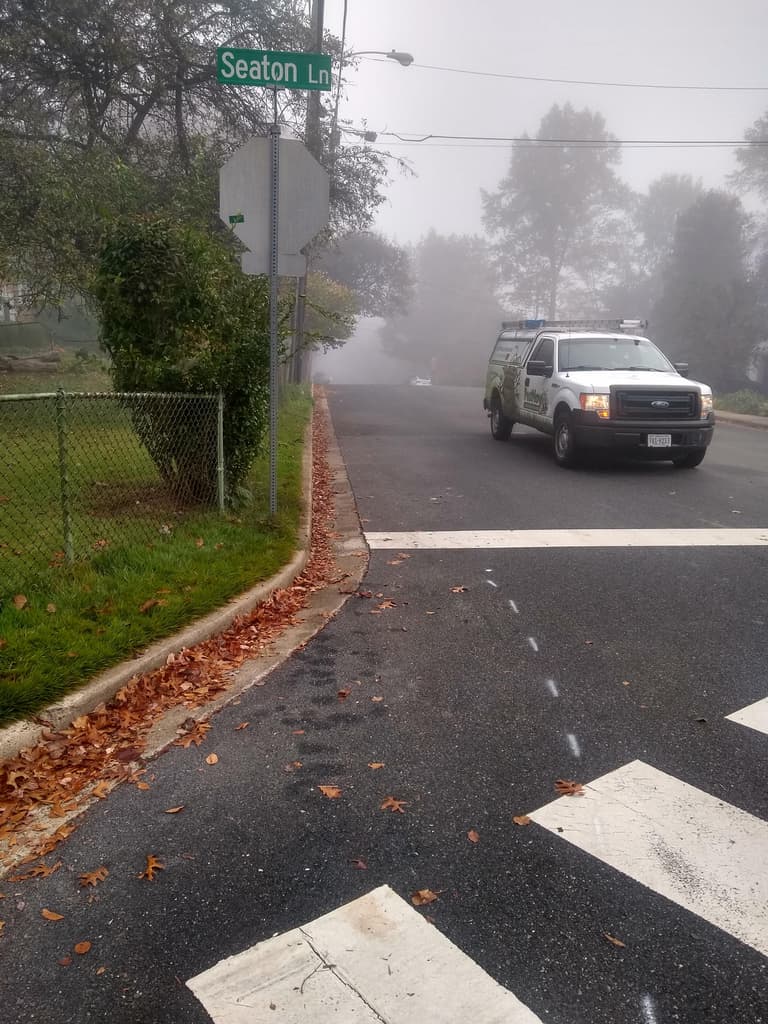
What’s Coming Up:
(1) City Council Meetings start at 730 pm, unless otherwise specified. You can access the agenda and livestream here, including recordings of past meetings including virtual Board & Commission meetings: https://www.fallschurchva.gov/471/Watch-City-Council-Meetings
(2) Save the date: November 4th – Fellows Park Master Planning
Fellows Property master planning process will get underway soon. Remember this is a nearly 2 acres parcel of land located at 604 S Oak St. that we bought last year, with the intention of turning the land into a city park. The first public comment opportunity will be the Wednesday, November 4, 2020 meeting of the Recreation and Parks Advisory Board. There will be additional opportunities for public comment at later dates.
Due to the COVID-19 pandemic, the meeting will be held virtually on Microsoft Teams starting at 7:00 p.m.. If you would like to speak at this meeting, please complete this form by 12:00 p.m. on Wednesday, November 4. You may also submit written comments by emailing jruby@fallschurchva.gov.